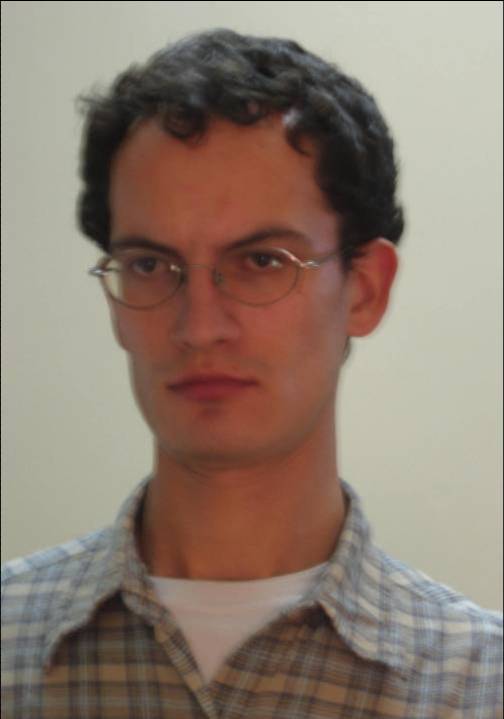Thursday, December 24, 2009
A Transition from Art Curators to Cultural Urbanists
Following on a recent reminder of how competitive finding an academic position can turn out to be, I wonder if there are options for taking up a position in between the fields of art, academia, and cities. Just as curators have emerged on the interface between art worlds and their social environments with institutionalization quickly following suit of their emergence as a distinct social role, perhaps urbanists that seek to mediate culture and cities might be able to perform the same transition in the uncertain terrain of emergent institutionalization of novel social roles. Largely, it must have been a de facto legitimization of curators' functions as art exhibitions have received social, economic and urban functions previously unforseen by art historians. As art history has entered the period of its theoretical crisis, dating to around thirty years ago, it seems that the field of art became ripe for a kind of transition that the agency of curators as power brokers has only sped up. Similarly, I assume the coming end of social theory as we know it, not unlike the withering of art theory, readies the larger social field of cities for a new breed of cultural power brokers that might find in urbanists their embodiment.
Monday, December 14, 2009
Between a Twit Posting and a Page-Length Blog
With the re-twit and facebook-on buttons slowly becoming an accepted part of our Internet experience, it does appear that a new space of reflection and writing has opened up that bridges the direct access to a link's referred web page and a one-liner message that only ever stays with us as we page newspapers through, scroll down the instantly updated blog-roll walls and scan twitter collections of concise news. It is like plugging the excitement of what captures imagination in an article into a tool that keeps the mental side-page note jottings written down, even if in a provisional blog format. It seems that what makes news novel cannot be merely captured in their factual content alone but requires reaching out to the similar moments of abrupt change, shifting circumstances, and unexpected constellations that in a flowing narrative form still wait for brief tags that would pull the outlines of a possible argument from the closely related to the subject matter accounts of authors who put feature articles together. It is not just the brevity but also the possibility to take comparative scope into account that does turn blog writing into a distinctive genre that can build on wikipedia articles. on-line magazines, and internet newspapers.
Discovering the Inner Man without Qualities
Capturing the moment in words is never easy. It is especially so when an uncertain moment is upon someone. I am not sure how much difference does it make when this someone is me. This indifferent difference must be due to the impact that the idea behind Musil's book The Man without Qualities has on its attentive reader who cannot but laugh at its occasional estranged descriptions of human foibles, or at occasional tender contourings of the qualities of the place and age it was written in. Not that anyone can vouchsafe how much difference or similarity there is between here and now and then and there. Wherever and whenever the former are. In other words, as Musil apparently takes the notion of qualitieslessness to a degree of theoretical lucidity all the while staying within the confines of novel as a genre, the novel becomes a thing whose qualities gain foothold if only in the field of imagination and attention of its occasional readers. The background to this consideration is, of course, Joyce's Ulysses that with a more or less elitist bent sets the standards of what counts as worldwide recognized literary genius. With the barriers of translations, translatability, and unequal paces of linguistic development, since it seems that English went through far more many transformations and changes than German did, the masterworks from the interwar margins of Europe still seem to be clamouring for attention globally. Even more so is the fate of even more marginal peoples and places. Which makes me think of whether the in-between world of post-Hapsburg literature and memory can be instructive of strategies for overcoming global marginality of language, geography or culture.
Sunday, December 06, 2009
From Parisian Arcades to Everyday Life via Cultural Capitals
Walter Benjamin's collection of disparate citations and comments that was brought together under the title of Passages- or, better known as, Arcades-Project opens with a common-place description of Parisian arcades that he cites from a city guide from mid-nineteenth century. What catches Benjamin's attention is the names of the shops and establishments brought under the roof of the then novel form of urban space, that of arcades. Overwhelmingly, as he remarks, these names brought famous operetta plays of these days to mind with their frivolous, exotic and seductive titles. Just as, later on, Benjamin's work on shopping arcades in Paris was taken to be paradigmatic for research on different kinds of space, themselves compared to these arcades, one could follow Benjamin's associative lead to make a connection between these original spaces and Parisian operettas. Notably, Kracauer saw operettas as a genre paradigmatic of the epoch and the city, Paris, where they were created and have exerted their influence, not least on the imagination of the everyday life that the practices of these first shopping malls corroborate. To this day, European shopping malls, such as one built in 2004 in Weimar, Germany, bear a heavy cultural imprint of collective imaginary that they represent in their fusion of coffee-houses, decorative interiors, and cultural references, located, ironically, in the super-structure of that building.
Subscribe to:
Comments (Atom)
